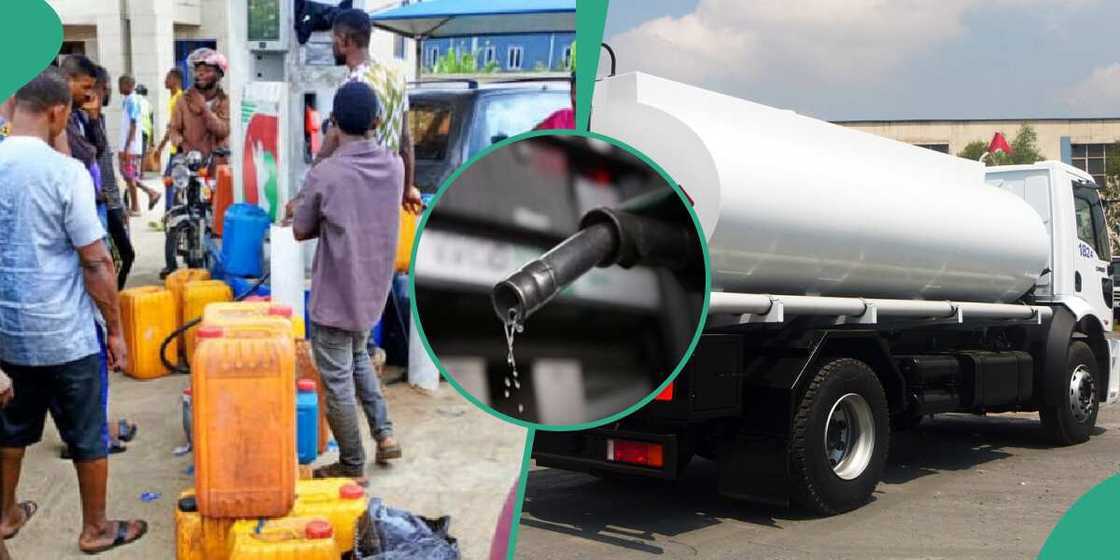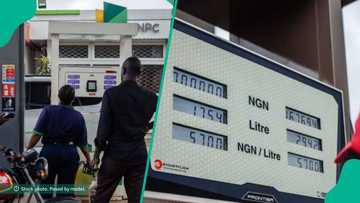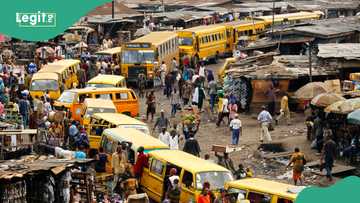N500 Per Litre: Nigerian Fuel Prices on Track to Crash in 2025
- Oil marketers and other petroleum industry experts have forecast a reduction in petrol prices in 2025 to as much as N500/litre
- The resumption of operations of the Port Harcourt and Warri refineries will drive this anticipated crash in price
- They highlighted that a steady supply of petroleum products would encourage competition, leading to further price reductions
CHECK OUT: Education is Your Right! Don’t Let Social Norms Hold You Back. Learn Online with LEGIT. Enroll Now!
Legit.ng journalist Victor Enengedi has over a decade's experience covering Energy, MSMEs, Technology and the Stock Market.
Petroleum product marketers and other stakeholders in Nigeria have projected a significant reduction in petrol prices by 2025.
They highlighted that petrol, currently priced between N900 and N950 per litre at many filling stations, could drop to as low as N500 per litre during the year.

Source: UGC
According to industry experts, this anticipated decline is attributed to the strengthening of the downstream sector, driven by the federal government’s deregulation policy.
Other factors contributing to the expected price reduction include a stable foreign exchange rate, increased price competition, the Naira-for-crude initiative, and the expected operations of the Port Harcourt, Warri, and Dangote refineries.
Stakeholders also noted that if these refineries supply the domestic market and accept payments in naira, it would further drive down petrol prices.
Marketers share why fuel prices may reduce further
The national publicity secretary of the Independent Petroleum Marketers Association of Nigeria (IPMAN), Ukadike Chinedu, described the upcoming operations of the Port Harcourt and Warri refineries as transformative for the downstream sector.
In an interview with Saturday Sun, he emphasised that these refineries would foster healthy price competition, a trend already becoming evident.
He noted that both the Nigerian National Petroleum Company Ltd (NNPC) and Dangote have reduced petrol prices in recent weeks, highlighting the benefits of having multiple production sources rather than a monopoly.
Ukadike expressed optimism that this development could drive petrol prices below N500 per litre by 2025 as more players enhance refining capacity.
He also identified the federal government's naira-for-crude policy as a critical factor in shaping petrol prices, predicting that it would curb inflation and ease pressure on foreign exchange.
The president of the Petroleum Products Retail Owners Association of Nigeria (PETROAN), Billy Gillis-Harry, expressed agreement with Ukadike's views.
He assured that the operational launch of the Port Harcourt and Warri refineries would result in more affordable fuel options for Nigerians.
Gillis-Harry emphasised that achieving lower petrol prices for consumers is a realistic prospect in 2025.
Gillis-Harry said:
‘’As you can see, NNPC has reduced its ex-depot price from N1,045 per litre to N899 per litre for marketers, translating to N925 per litre at the pumps for the end users. This, I must say, is very commendable. These are not small drops, but massive drops from N1,045 to N899 ex- depot is a lot of drop.”
He highlighted that a steady supply of petroleum products would encourage competition, leading to further price reductions in the coming year.
On his part, the publicity secretary of the Crude Oil Refiners Association of Nigeria (CORAN), Iche Idoko, stated that Nigerians would soon start experiencing the benefits of a deregulated market.
Idoko said:
“Price drop is one of the characteristics of deregulation we had highlighted. As the industry settles in to the regime of full deregulation, we are bound to see competitions amongst players, which ultimately will benefit the consumers.”
He explained that competition would emerge in pricing, product quality, and credit facilities offered to bulk purchasers.
Marketers import 2.3bn litres of petrol
In related news, Legit.ng reported that oil marketers have continued to import petrol into the country despite earlier agreements to patronise local refineries.
Documents obtained from the Nigerian Ports Authority revealed that marketers have persisted in petrol importation.
The data collected showed that imported petrol was docked at the Apapa Port, Tin Can Port and the Calabar Port.
Proofreading by Nkem Ikeke, journalist and copy editor at Legit.ng.
PAY ATTENTION: Сheck out news that is picked exactly for YOU ➡️ find the “Recommended for you” block on the home page and enjoy!
Source: Legit.ng





